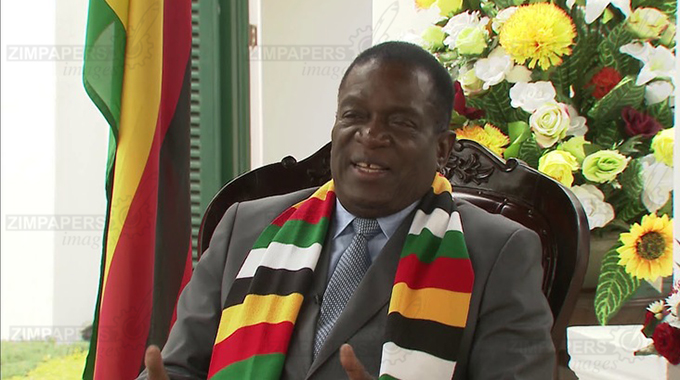Source: Editorial Comment: Institutional reforms demand patience | The Herald 10 FEB, 2020

President Mnangagwa’s administration has made it clear that its focus is to institute reforms to enhance the status of the country in every facet.
And we have seen some of these reforms taking shape, with changes noticed in the political, social and economic fields.
Yet, there have been some who choose to turn a blind eye to the progress being made under the new dispensation meant to make Zimbabwe a more progressive society.
What needs to be appreciated is that reforms in a country that has been facing numerous problems for a long time cannot be implemented and take effect within a short period.
It needs careful initiatives that establish strong building blocks for durable changes that will anchor the new society.
It is important that when President Mnangagwa hosted diplomats accredited to Zimbabwe last Thursday, he called for patience from the international community as the country accelerates its reform agenda.
What is needed is for the international community to have a genuine assessment of the road Zimbabwe has so far travelled in reforming the way it does business.
This assessment will show that many issues have been tackled under this reform agenda, and more is still being done to align Zimbabwe with the dictates of modern society.
The problem is that there are some who still want to equate the Government of President Mnangagwa with the old dispensation that ended with the resignation of former President Robert Mugabe in November 2017.
But the fact is that Zimbabwe is changing in various ways for the better, thanks to the reform agenda being diligently implemented.
This deliberate effort of turning a blind eye to the reform agenda is because of the lack of patience that some diplomats tend to openly exhibit.
Other people have been trying to take advantage of some of the challenges being encountered during this reform period to cause mayhem.
We have, for instance, witnessed demonstrations and threats of demonstrations over some of the changes taking place in our society due to the realignment programme.
Yet, it is important to realise that such a huge leap forward cannot be carried out without causing temporary discomfort to the people.
The bigger goal, which the Government is moving towards, is to completely reform the country and set it on a path to growth, and a return to the international fold.
Zimbabwe is now a more open society where institutions like the media enjoy their rights without any hindrances.
Journalists, including those from the international media, are now operating freely in the country after suffering years of acrimony with the previous government.
That the new dispensation has opened up media space is evident, with the disbanding of the Access to Information and Protection of Privacy Act (AIPPA) being the major act.
New laws have been crafted to enhance the opening up of the media space after the demise of AIPPA, which was seen as draconian.
These laws include the Freedom of Information Bill, Zimbabwe Media Commission Bill, Broadcasting Services Amendment Bill and the Protection of Personal Information Bill.
The Bills are meant to enhance the right to freedom of expression and freedom of the media.
On the political front, the new dispensation has since replaced the Public Order and Security Act (POSA) with the Maintenance of Peace and Order (MOPA).
MOPA gives more freedoms to people who hold demonstrations, a departure from the past when that space was constrained.
The Political Actors Dialogue (POLAD) is another platform which shows President Mnangagwa’s reform efforts, as the dialogue brings together political party leaders to chart the way forward for Zimbabwe.
POLAD has set an example to the world on how political parties can afford to differ in their ideologies and thinking, but still be able to come under one roof to chart the way forward.
This is coupled by the engagement and re-engagement process which is meant to revisit relations with some countries which have been sour for many years.
Other law reforms include the Marriage Bill 2019 which seeks to repeal and replace the Customary Marriages Act (Chapter 5:07) and the Marriages Act (Chapter 5:11).
The objectives of the Bill include ensuring gender equality, recognition of the rights of women, youths and children, and the preservation of cultural values and practices which enhance the dignity, well-being and equality of people.
The Coroner’s Office Bill introduces a formalised coroner system which protects human rights through assisting in safeguarding human lives by investigation of preventable deaths, identification of deceased persons, making the persons responsible for the relevant deaths accountable, and prevention of recurrence of such incidents.
There has also been reform in the investment sector with the promulgation of the Zimbabwe Investment and Development Agency (ZIDA).
Parastatals are being reformed through the Public Enterprises Reform Programme, which is already gathering pace.
President Mnangagwa has made his stance clear against corruption, especially when he appointed a new Zimbabwe Anti-Corruption Commission (ZACC) and gave it arresting powers.
The reforms have been in every sector — economic, social, political and media — and the international community should give them time to reach their logical conclusion.
The post Editorial Comment: Institutional reforms demand patience appeared first on Zimbabwe Situation.